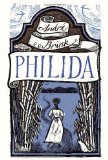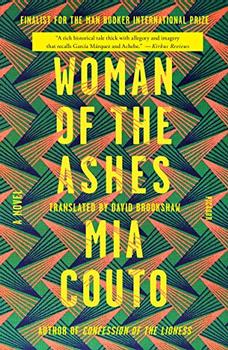Summary | Excerpt | Reading Guide | Reviews | Beyond the book | Read-Alikes | Genres & Themes | Author Bio

In Philida, longlisted for the Man Booker Prize, André Brink—"one of South Africa's greatest novelists" (The Telegraph)—gives us his most powerful novel yet; the truly unforgettable story of a female slave, and her fierce determination to survive and to be free.
This is what it is to be a slave: that everything is decided for you from out there. You just got to listen and do as they tell you. You don't say no. You don't ask questions. You just do what they tell you. But far at the back of your head you think: Soon there must come a day when I can say for myself: This and that I shall do, this and that I shall not.
André Brink - "one of South Africa's greatest novelists" (The Telegraph) - gives us his most powerful novel yet; the truly unforgettable story of a female slave, and her fierce determination to survive and to be free.
It is 1832 in South Africa, the year before slavery is abolished and the slaves are emancipated. Philida is the mother of four children by Francois Brink, the son of her master. When Francois's father orders him to marry a woman from a prominent Cape Town family, Francois reneges on his promise to give Philida her freedom, threatening instead to sell her to new owners in the harsh country up north.
Here is the remarkable story - based on individuals connected to the author's family - of a fiercely independent woman who will settle for nothing and for no one. Unwilling to accept the future that lies ahead of her, Philida continues to test the limits and lodges a complaint against the Brink family. Then she sets off on a journey - from the southernmost reaches of the Cape, across a great wilderness, to the far north of the country - in order to reclaim her soul.
Philida does everything great fiction should: it captures the imagination, takes us to another time and place, moves us viscerally, informs us and leaves us feeling the need to do better in this world...continued
Full Review
(804 words)
This review is available to non-members for a limited time. For full access,
become a member today.
(Reviewed by Jennifer Dawson Oakes).
Afrikaans words or expressions are peppered throughout André Brink's novel, Philida. Brink started his career writing in Afrikaans, his native language, but switched to writing in English interspersed with Afrikaans which he uses to help maintain the authenticity of his characters. Many of the words can be puzzled out from the context of their use but some are a bit more of a challenge.
 Afrikaans originated in the 17th century as Dutch settlers moved into South Africa. The language is rooted in Dutch but has been blended and influenced by the languages of the Khoikhoi people as well as those from slaves brought to the Cape region from Malaya, Indonesia, Madagascar and West Africa. German and French also influenced the language's...
Afrikaans originated in the 17th century as Dutch settlers moved into South Africa. The language is rooted in Dutch but has been blended and influenced by the languages of the Khoikhoi people as well as those from slaves brought to the Cape region from Malaya, Indonesia, Madagascar and West Africa. German and French also influenced the language's...
This "beyond the book" feature is available to non-members for a limited time. Join today for full access.

If you liked Philida, try these:

by David Brookshaw, Mia Couto
Published 2019
The first in a trilogy about the last emperor of southern Mozambique by one of Africa's most important writers.

by Paula McLain
Published 2016
The extraordinary adventures of a woman before her time, the exhilaration of freedom and its cost, and the tenacity of the human spirit.